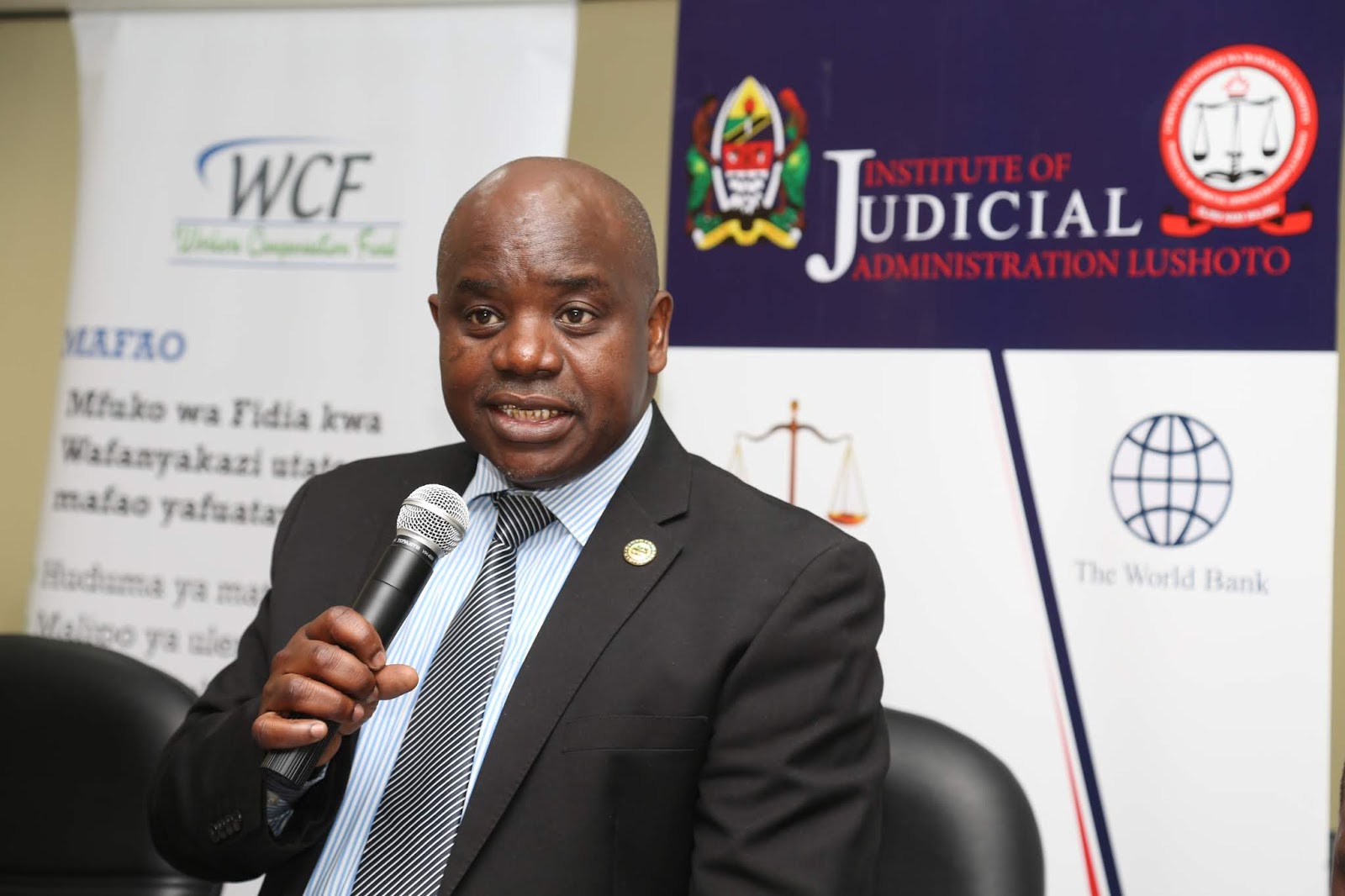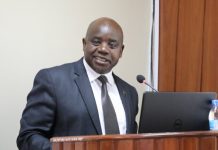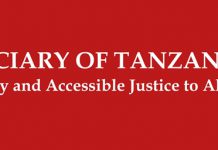Author: FAUSTINE KAPAMA
AfricaPress-Tanzania: Principal Judge, Dr Eliezer Feleshi, has directed judicial officers to uphold ethics as they discharge their day-to-day duties to provide better services to citizens and protect the dignity of the Judiciary of Tanzania.
He gave such directives when speaking at various times with Bukombe and Chato District judicial officers in Geita Region during his tour of the High Court, Mwanza Zone.
Dr Feleshi also called on the staff to work together and love each other and serve citizens judiciously.
“Uphold the principles of your work, let us have good relations with ourselves and other stakeholders of the Judiciary,” stressed the principal judge in a statement issued yesterday by the Judiciary’s Director of Information and Communications, Ms Lydia Churi.
On the improvement of performance, Dr Feleshi advised judicial officers to upgrade themselves so that they could be able to work in more than one profession.
In addition, he urged them to learn and understand the institution with which they were working.
According to the principal judge, the judicial officers should internalise social skills to enable them to discharge their duties effectively.
He pointed out that junior employees had often been neglected to receive training, so he urged the management of the judiciary to ensure such staff members were also trained to improve their performance.
On the hearing of cases, Dr Feleshi urged judges and magistrates to attend to cases timely and if possible conduct sessions even on Saturday to reduce the workload.
He said cases involving accused persons who were in remand should be given priority to decongest prisons. The principal judge also urged magistrates to ensure they completed on time cases, especially those relating to the administration of estates and marriage.
“Marriage cases have a huge impact on families, especially children, but also inheritance cases also affect orphans, widows and widowers. So, they must be completed on time,” he said.
When speaking at the offices of Bukombe and Chato district commissioners, the principal judge advised the Police Force to expedite investigation so that criminal proceedings could be completed on time.
“The police should speed up investigation, as there are cases waiting the police to complete investigation and the consent of the Director of Public Prosecutions (DPP),” said Dr Feleshi.
He said the Judiciary had put in place strategies to finalise cases on time, including judges and magistrates to determine those cases within a year. Judges are required to hear 220 cases and dispose of 250 cases.
The principal judge concluded his five-day tour of the High Court in Mwanza, where he inspected operational judicial activities in the district courts of Nyamagana, Ilemela, Misungwi, Kwimba, Magu, Ukerewe and Sengerema.
He also visited Bukombe district courts, Chato Geita and Geita Resident Magistrate’s Court.
During his tour, Dr Feleshi, among other things, asked the Prevention and Combating of Corruption Bureau (PCCB) to investigate corruption complaints against the Judiciary of Tanzania.
The principal believed that some of the complaints were being made because of citizens not knowing various court procedures.
“The Judiciary of Tanzania does not engage in corrupt practices and does not protect those involved in such acts,” Dr Feleshi is quoted as saying.
According to him, corrupt practices are perpetrated by unethical employees themselves.
He pointed out, therefore, that the Judiciary of Tanzania would not hesitate to take disciplinary action against any employees, who engaged themselves in such conduct and had always been doing so.
Dr Feleshi believes that corruption allegations against the Judiciary could be caused by citizens of not being aware of operational procedures, how to obtain copies of judgments, proceedings and the manner in which cases are heard at various court levels.
On his first day in the Lake Zone, the principal judge also directed all High Court judges and magistrates to determine by December this year all cases relating to the administration of estates, which had been pending in court for a long time.
He said inheritance cases filed in the past should not go beyond 2020 and insisted that if possible they should be heard until Saturday to ensure were finalised within this year.







